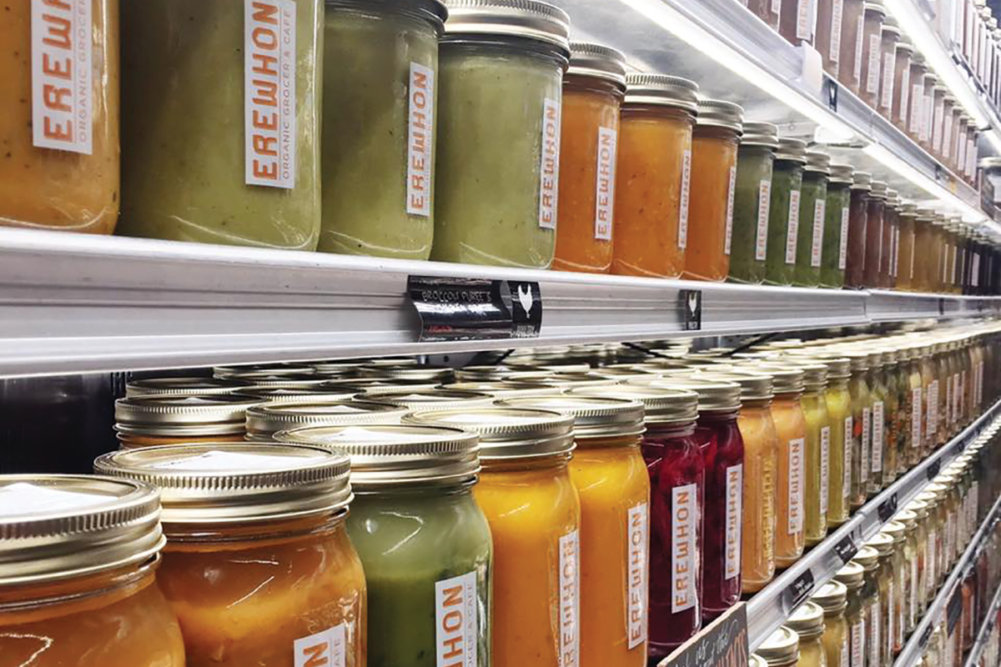CHICAGO — While the explosive growth of e-commerce may suggest less in-store shopping, essential food businesses are here to stay. Far from becoming obsolete, grocery retailers have gained a new opportunity to innovate in a quickly evolving market.
As shoppers start spending more time in stores, retailers will continue placing a greater emphasis on food and patron safety. At the same time, they have the opportunity to promote a wider, more inclusive selection of products, elevate new brands and leverage tactile in-store components to heighten exploration and discovery. To thrive in this market, retailers will need to create an environment that educates and curates a customized experience for consumers.
Establishing this environment sometimes begins even before consumers enter the store. Outdoor space, including the parking lot, exterior merchandising and patio dining all may be part of a cohesive shopping experience. Emerging out of a pandemic, Dom’s Kitchen & Market is opening its first store in Chicago this spring. Building on recent industry shifts and new safety needs, Dom’s will have an outdoor restaurant-style dining area for customers to enjoy made-to-order meals and products from its specialty market.
Retailers may also prepare customers for their visit with customized content highlighting the latest trends and new niche products. In an information-heavy climate, engaging with reputable agents to become the authority on grocery will help retailers build a trusting relationship with today’s mindful consumers.
The team at upscale West Coast grocery chain Erewhon is “passionate about carrying the most-healthful, revolutionary, exciting” products, said Vito Antoci, vice president of brand management. To achieve this goal, Erewhon’s website shares information to empower consumers in their quest for healthful ingredients.
Moving forward, creating a curated and inclusive experience should be top of mind for grocery retailers.
Some players are invigorating the retail environment by replacing traditional departments with new and unexpected categories. Erewhon’s customers can find specialized products in its novel Café & Tonic Bar, while temporary exhibit-turned-market Pop Up Grocer is reclassifying its aisles with intuitive names like “Crunch” and “Balls, Bars + Bits.” Elevated convenience store concept Foxtrot Market also uses fun graphics to engage customers and illustrations instead of words to label grocery sections.
Moving forward, creating a curated and inclusive experience should be top of mind for retailers. In late 2020, Foxtrot launched its Up and Comers Small Makers Award program to find the next great brand. Customers were invited to vote online, building excitement and community engagement with the store. Chief marketing officer Carla Dunham said that in addition to “continuing to flow in newness on a monthly basis,” the contest gives emerging women-founded, minority-owned and mission-based brands the opportunity to get noticed. Keen to support local, Dom’s Kitchen & Market is also launching an end cap featuring makers from The Hatchery’s non-profit incubator, which supports Chicago’s West Side entrepreneurs, primarily women and Black-owned businesses.
These initiatives hit the heart of in-store retail’s new role and responsibility. Beyond checking off their grocery lists, consumers seek to immerse themselves in a safe environment where they can gain empowering information and build meaningful connections with brands. As on-the-ground changemakers, retailers can respond by altering the industry landscape, diversifying shelves and giving voice to innovative entrepreneurs and startups. Rather than focusing on transactional relationships, stores can partner with brands that speak to consumers’ values — and move shopping off the screen and in the store.
Natalie Shmulik is the chief executive officer of The Hatchery Chicago, a food and beverage incubator.

